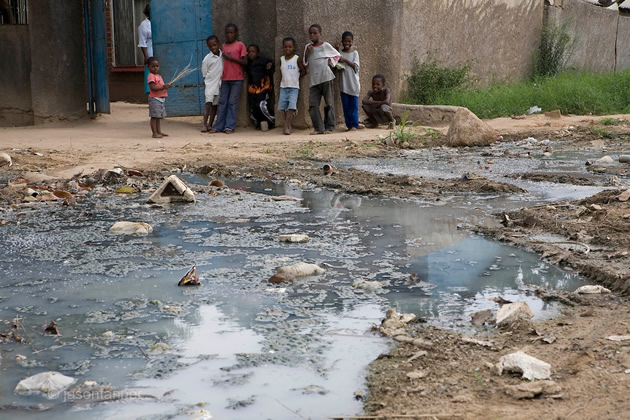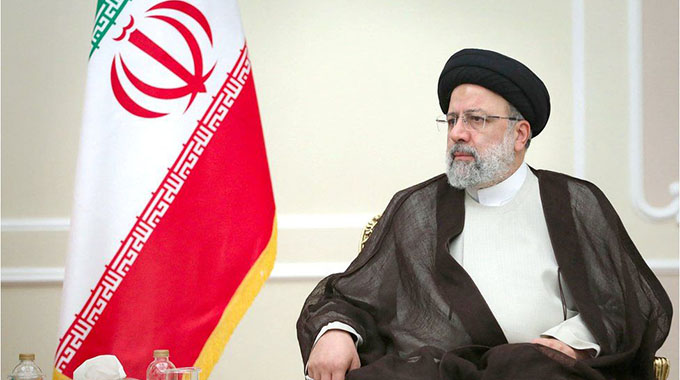No Ebola aid, vaccine trial yet

 Monrovia. — Ebola-hit west Africa’s governments were desperately counting on promises of global aid to be effected Friday as the World Health Organisation announced urgently awaited vaccines could be ready early next year.
Monrovia. — Ebola-hit west Africa’s governments were desperately counting on promises of global aid to be effected Friday as the World Health Organisation announced urgently awaited vaccines could be ready early next year.
Liberia, the hardest-hit nation with almost 1 700 deaths, welcomed pledges of help from world leaders gathered at the United Nations on Thursday, but warned it was losing the trust of its people as the crisis escalated.
“We are happy to hear that the entire world now understands the urgency of the reaction to threat of Ebola,” Liberian Information Minister Lewis Brown told AFP.
“We hope that the commitment will be quickly followed by action because, if this drags for long, the populations of the various countries will begin to lose patience and they will blame our governments.”
Health systems in Liberia, Sierra Leone and Guinea have been overwhelmed by the epidemic, which has killed 3 000 people since the start of the year, and are in dire need of doctors, nurses, medical equipment and supplies.
The WHO told reporters in Geneva it was working with British company GlaxoSmithKline (GSK) and American group NewLink Genetics to accelerate clinical trials on two vaccines.
Some trials of the GSK vaccine have begun in the United States and Britain, and others are expected to begin in Mali next week, said WHO assistant director general Marie-Paule Kieny.
Trials of the NewLink vaccine are also set to start “imminently” in the US, and others are planned in Germany and elsewhere.
“If everything goes well, we may be able to begin using some of these vaccines in some of the affected countries at the very beginning of next year,” Kieny said.
The European Medicines Agency watchdog said it was gathering all available information on experimental Ebola treatments to help doctors and health authorities make decisions on what to offer patients.
Currently, there is no licensed treatment or vaccine against Ebola, although drugs which have not been fully tested have already been given to a few infected health workers, with stocks extremely limited.
“This is not a vaccine, this is a candidate vaccine,” Kieny stressed, pointing to the need for caution in rolling out the vaccines.
The two prototypes “have given very promising results in monkeys, but monkeys are not humans,” she said, adding that people who receive them initially “should not consider themselves protected against Ebola”.
WHO is trying to accelerate the development of around half a dozen treatments for Ebola, including the prototype ZMapp drug already given to US and Spanish aid workers.
Kieny said “a few hundred doses” should be available by the end of the year.
US President Barack Obama led calls for a ramped up response to the Ebola epidemic at the UN in New York on Thursday, urging governments, businesses and international organisations to join the fight.
Officials could not provide an immediate tally of the total pledges made at the meeting but the UN’s coordinator for Ebola, David Nabarro, said countries had “responded with generosity”.
Canada announced a contribution of $27 million (21 million euros) while France said it had set aside 70 million euros in a battle that the United Nations estimates will require close to one billion dollars.
The European Union said it would add 30 million euros to the current 150 million euros it has provided.
UN officials said a 20-fold surge in assistance is needed to come to grips with the outbreak.
Sierra Leone took the drastic step on Thursday of putting another three of its 14 districts under quarantine, meaning that more than a third of the population of six million can no longer move freely.
“My country is at the battlefront of one of the biggest life and death challenges facing the global human community,” Sierra Leone’s President Ernest Bai Koroma warned the UN by video link from Freetown.
A UN mission on Ebola set up last week is due to deploy in west Africa on Sunday, bringing supplies and equipment including protective suits, trucks, and helicopters.
The United States has begun sending the first of a 3,000-strong military mission to Liberia to help battle the contagion and has mobilised its experts from the Centres for Disease Control and Prevention to help beat back the virus.
Cuba said it would send nearly 300 more doctors and nurses to help fight epidemic, raising to 461 the number of its medical personnel in the region.
Thousands of doses of experimental Ebola vaccines should be available in the coming months and could eventually be given to health care workers and other people at high risk of the deadly disease, the World Health Organization said yesterday.
No vaccine has yet been proved to be safe or effective in humans, said Marie-Paule Kieny, assistant director-general at WHO, who spoke at a press conference in Geneva that was later shared by email. Testing must first be done to ensure they are not harmful to people, some of which has already begun, she said.
The Canadian government has already donated 800 vials of one vaccine, which it developed before licensing to NewLink Genetics Corp. Kieny said the company is expected to produce several thousand more doses in the coming months. It’s unclear how many doses the 800 vials hold because testing needs to be done to determine how large an effective dose is, but Kieny said it was probably about 1,500.
By the beginning of next year, there should be about 10,000 doses of another vaccine, developed by the U.S. National Institutes of Health and GlaxoSmithKline, Kieny said.
“This will not be a mass vaccination campaign,” she said. Health workers or people known to have had contact with an infected person could be given a vaccine as early as January, as part of a bigger trial to test the shot’s effectiveness, she said.
The Ebola outbreak sweeping West Africa is believed to have sickened more than 6 200 people and killed about half of those. It has overwhelmed health systems and defied the typical methods used to stem Ebola’s spread.
US health experts have warned that the number of infected people could explode to 1.4 million by mid-January, but that it could peak well below that if the response is ramped up. — AFP.







Comments